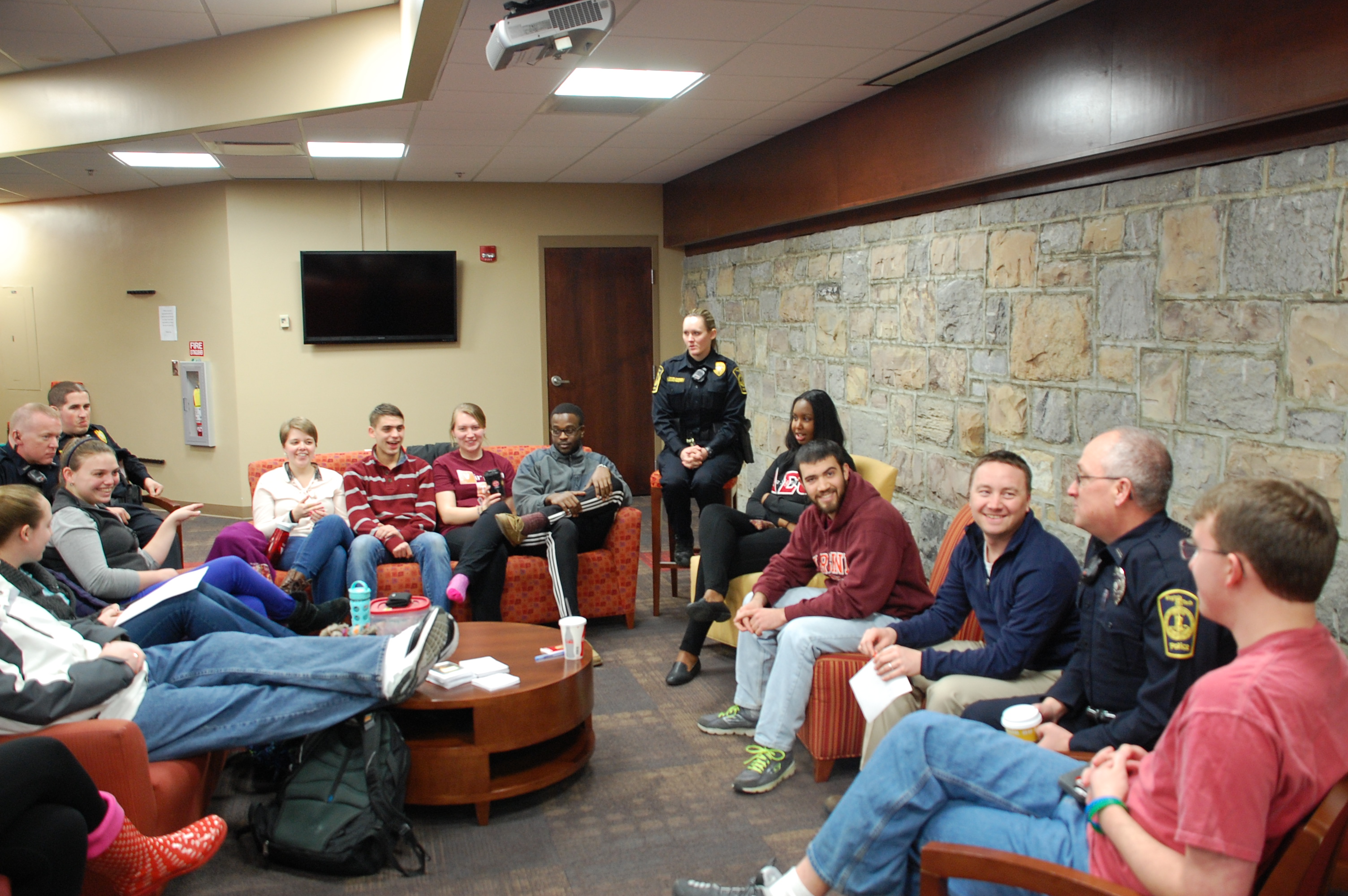Residence life resource officers seek stronger relationships with students living on campus

It’s all about proactive law enforcement, said Virginia Tech Police Officer Nicole Quesenberry.
Quesenberry is one of four residence life resource officers committed to the university's Residence Life Community Resource Officer Program. Created in 2011 by Virginia Tech Police and Housing and Residence Life, the program seeks to build interactive and educational relationships between Virginia Tech Police officers and students who live in campus residence halls.
Four full-time police officers--Kenneth Ball, John Tarter, Jeffrey Zumwalt, and Quesenberry--are assigned to the program.
“As Virginia Tech Police officers, we do everything other police officers do,” said Quesenberry. “In addition, we practice proactive law enforcement that allows us to bond with students. When we are out on campus, we want students to be comfortable approaching us because they know who we are and what we do.”
Resource officers attend staff meetings, lead educational programs, conduct walk-throughs in residence halls with resident advisors, assist in emergencies, and serve as mentors to students who have gone through the conduct process.
“Students appreciate our community resource officers,” said Caraline Moholland, residential learning coordinator for Pritchard Hall. “At the beginning of the year, their reactions are what you would expect when a first year student sees a police officer in their hall -- a lot of ‘why is he here?’ or ‘is she on the floor to arrest someone?’ But those reactions fade pretty quickly as they become familiar faces in the building.”
The Cops and Candy program is one example of how resource officers interact with students and residence life staff. As they distribute candy, they also pass along information on university alcohol and drug use policies.
They also offer Rape Aggression Defense seminars for female students, a comprehensive 12-hour course that begins with awareness, prevention, risk reduction, and avoidance and progresses to the basics of hands-on defense training.
The resource officers are open to suggestions on how they can expand their reach.
“If students know of issues happening within their community that they would like to address, we can address it,” Quesenberry said.
“After attending programs such as Cops and Candy and the RAD seminar, I think students have a better understanding of the resources we can provide them, which creates less hostility between students and officers,” said Tarter.
“Students recognize and appreciate that the officers are available and attend to student and staff needs immediately. They are approachable, personable, and friendly, but they can be no-nonsense when they need to be,” said Eleanor Finger, director of housing and residence life. “Students get more candid information from resource officers that help them make better choices. The resource officers help residents connect with police instead of seeing them as a punitive force.”
“They give so much to the community and students see them in a positive light," said Leah Ward, residential learning coordinator for Main and East Campbell halls. "It's helpful to have that relationship with them because they are always there for the community.”
The program’s resource center is located on the first floor of Dietrick Hall with an exterior entrance on the east side. Students can contact resource officers through the Virginia Tech Police website or via the ROLONation Facebook page.
RLRONation, a radio show that airs on WUVT, is another opportunity for the resource officers to interact with the Virginia Tech community.
The Residence Life Resource Officer Program received the 2013 Division of Student Affairs Partnership Award.
Written by Emily Hughes of Ashburn, Virginia, a sophomore majoring in communication in the College of Liberal Arts and Human Sciences, and Brooke Williams of Christiansburg, Virginia, a junior majoring in English and communication in the College of Liberal Arts and Human Sciences.




